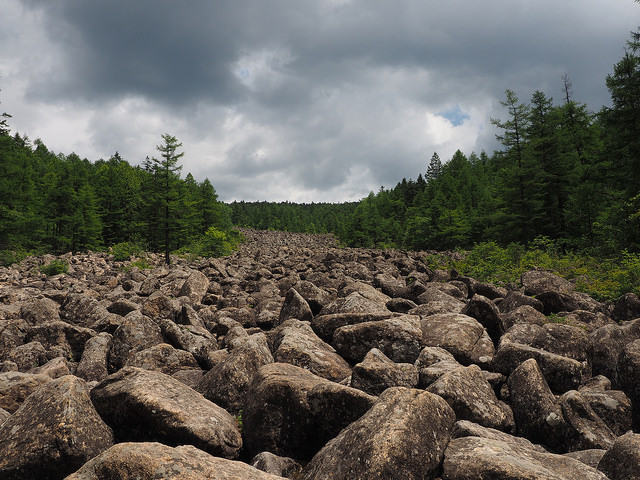- California Assembly OKs highest minimum wage in nation
- S. Korea unveils first graphic cigarette warnings
- US joins with South Korea, Japan in bid to deter North Korea
- LPGA golfer Chun In-gee finally back in action
- S. Korea won’t be top seed in final World Cup qualification round
- US men’s soccer misses 2nd straight Olympics
- US back on track in qualifying with 4-0 win over Guatemala
- High-intensity workout injuries spawn cottage industry
- CDC expands range of Zika mosquitoes into parts of Northeast
- Who knew? ‘The Walking Dead’ is helping families connect
US humanitarian aid group finishes planting over 5 million trees in N. Korea

North Korea’s stone river (Courtesy of Clay Gilliland via Flickr/Creative Commons)
By Yi Whan-woo
Korean American aid workers have finished planting over 5 million trees over the course of a decade in North Korea to bolster inter-Korean cooperation, a U.S. media outlet reported Friday.
On their latest trip, the group planted some 170,000 trees.
The Korean-language edition of the Voice of America (VOA) said online that members of the One Green Korea Movement (OGKM) planted young, bare-root pine trees during their visit to the reclusive state in late May.
Based in New Jersey, OGKM is a private organization mainly comprised of Korean-Americans, with a couple of advisers from South Korea. They include Seoul’s former U.N. ambassador, Lee Si-young, and former Korea Forest Service Minister Lee Don-koo.
The VOA said the pine trees were brought from South Korea and planted on the mountains and arboretums around the Dooman River and Rajin-Sonbong region.
The 521-kilometer-long Dooman River marks the border between North Korea and China. The port city of Rajin and Sonbong County combined make up the Pyongyang regime’s special economic zone facing China and Russia.
The humanitarian aid group has planted more than 5 million trees in North Korea over the past 10 years, according to the VOA. It said the group planned to grow a total of 6.5 billion trees there to help the impoverished regime restore forests and the ecosystem.
It said OGKM also wanted to introduce trees from North Korea to South Korea to boost environmental cooperation between the two nations.















